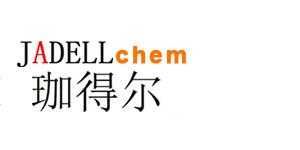Recombinant Human B7-1/CD80, Fc Chimera (HEK293-expressed) 是在 HEK293 细胞中产生的 C-末端标记 IgG1 Fc 片段的多肽链。CD80 是一种共刺激分子,在 T 细胞活化中发挥作用以及调节正常和恶性 B 细胞活性。
Synonyms
rHuB7-1/CD80, Fc Chimera; BB1; CD28LG; CD28LG1; LAB7
Species
HumanSource
HEK 293 Accession
P33681 Gene ID
941 Molecular Weight
75-80 kDa AA Sequence
VIHVTKEVKE VATLSCGHNV SVEELAQTRI YWQKEKKMVL TMMSGDMNIW PEYKNRTIFD ITNNLSIVIL ALRPSDEGTY ECVVLKYEKD AFKREHLAEV TLSVKADFPT PSISDFEIPT SNIRRIICST SGGFPEPHLS WLENGEELNA INTTVSQDPE TELYAVSSKL DFNMTTNHSF MCLIKYGHLR VNQTFNWNTT KQEHFPDN Biological Activity
2 µg/mL (100 µL/well) of immoblized recombinant human CTLA-4-Fc can bind human B7-1/CD80-Fc with a linear range of 1.22-9.77 ng/mL. Appearance
Lyophilized powder. Formulation
Lyophilized after extensive dialysis against PBS. Endotoxin Level
<0.2 EU/μg, determined by LAL method. Reconstitution
Reconstitute the lyophilized recombinant Human B7-1/CD80, Fc Chimera (HEK293-expressed) (rHuB7-1/CD80, Fc Chimera) to 100 µg/mL using ddH2O or diluted with PBS. Storage & Stability
Lyophilized recombinant Human B7-1/CD80, Fc Chimera (HEK293-expressed) (rHuB7-1/CD80, Fc Chimera) is stored at -20°C. After reconstitution, it is stable at 4°C for 1 week or -20°C for longer. It is recommended to freeze aliquots at -20°C or -80°C for extended storage. Shipping
Room temperature in continental US; may vary elsewhere. Background
CD80 (B7-1) and CD86 (B7-2) are expressed as cell surface molecules by APCs and are responsible for delivering additional or second signals to T cells when they interact with their ligands CD28 and CD152 (CTLA-4). Expression of B7.1 (CD80) and B7.2 (CD86), two related moleculesbelonging to the Ig superfamily, appears crucial to the ability of the APCs to activate T cells[1]. |



